Story highlights
Perparim Rama became a refugee from Kosovo when he was 16
Separated from his family, he considered returning to fight but managed to reconnect with them
Bringing them to safety in the United States, Rama says they wanted to return home when peace returned
Perparim Rama considers himself lucky.
In 1992, at the age of 16, he was on holiday in the United Kingdom – he had a cousin living there. Upon recognizing the worsening situation in his homeland, Kosovo, he decided to claim asylum in the UK.
At the time, Kosovo was caught up in a struggle for autonomy within the former Yugoslavia. The conflict had its roots in Serbian President Slobodan Milosevic’s 1989 decision to eliminate the region’s self-rule, bringing it under the control of Belgrade.
Before Rama left the country, there were already signs of worse things to come. Schools were shuttered and teachers – like his parents – left jobless. Learning the Albanian language was forbidden. Young boys, like himself, were being recruited by the Serbian paramilitary and police “to go and fight against Croats or Slovenians or Bosnians,” he says. He chose not to.
“It was safer for me as a 16 year old to be on my own in Great Britain rather than be back home with my family.”
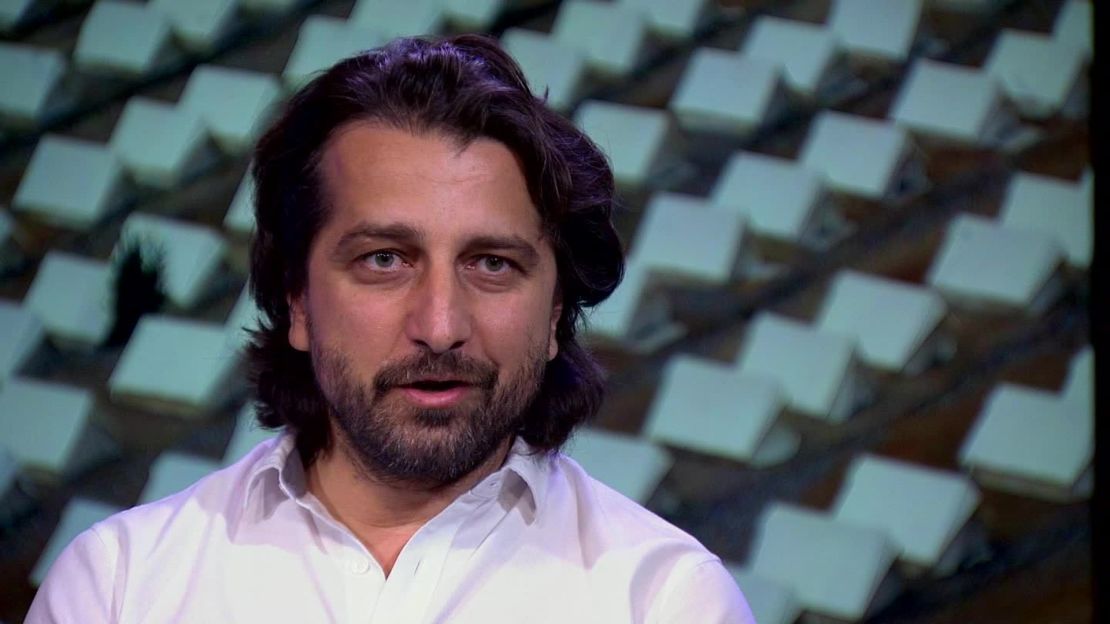
As the 1990s wore on, the crisis eventually became what NATO described a “major humanitarian disaster” – the systematic ethnic cleansing of Albanians, which made up more than 80% of the population of Kosovo. It culminated with the NATO-led airstrikes, which took place in 1998 and 1999.
Irrational choices
When the NATO bombs began to fall, Rama lost all contact with his family back home.
At the time, he was in New York for work experience with an architectural firm. He decided to shift his focus from architecture to helping the swathes of refugees escaping Kosovo, working with the International Rescue Committee, the New York-based aid agency founded by Albert Einstein.
Back home, his family was given five minutes to gather their belongings in Kosovo and leave for refugee camps on the Macedonian border. It was then, wracked with not knowing what had happened to his loved ones that Rama – for the first time – considered going back home to fight.
“I didn’t know what had happened to my family. So I wasn’t sure whether I wanted to sort of continue and stay in safety or whether I, at some point, want to go back and fight.
“You come to a point where your family has disappeared, you know nothing about them, and you start making these crazy decisions.”
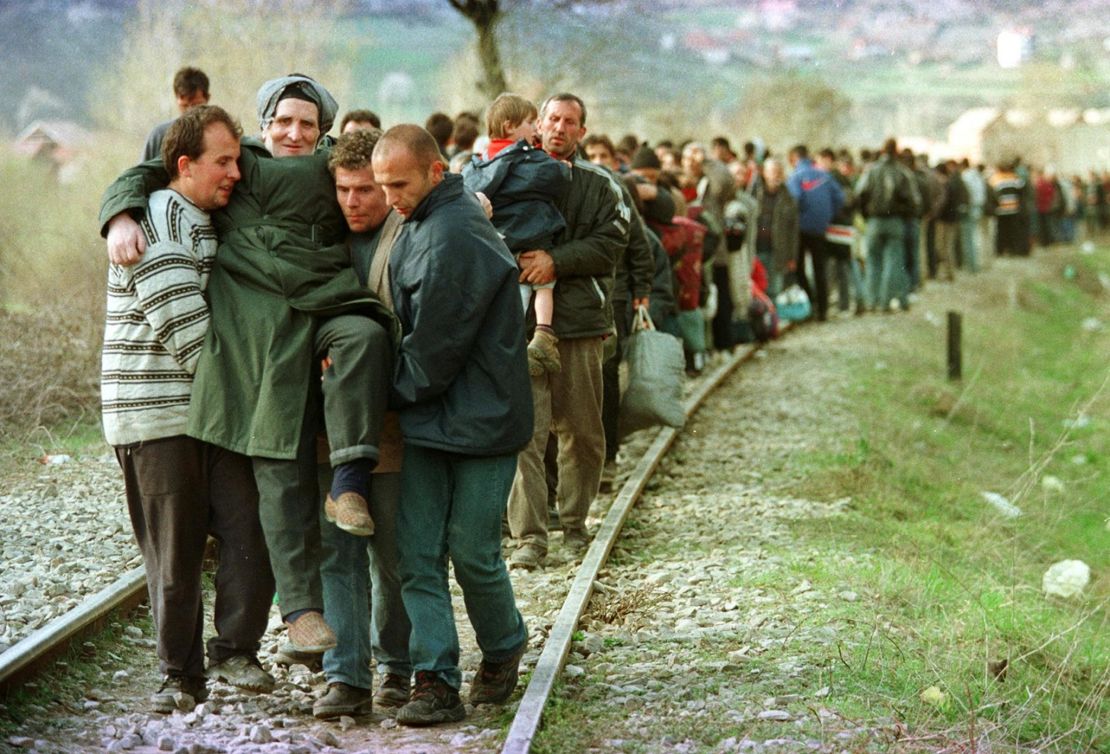
Two months after initially losing contact, he finally received a phone call from his youngest sister who confirmed the family had safely made it through the border and into Macedonia.
At around the same time, the U.S. had announced that it would open up its own borders as well, accepting 20,000 refugees. Rama’s family was a part of that batch of refugees.
It was that crucial phone call from his sister that held him back from returning to Kosovo to fight, he says.
Cherished belongings
When his parents left their home behind, they grabbed just two things: his mother grabbed a photo album of his childhood photos and his father, a painter and art professor, grabbed his portfolio.
During their transition, stuck in the refugee camps, his mother lost that album. That was devastating for her, he said.
“That’s the only thing she cared for.”
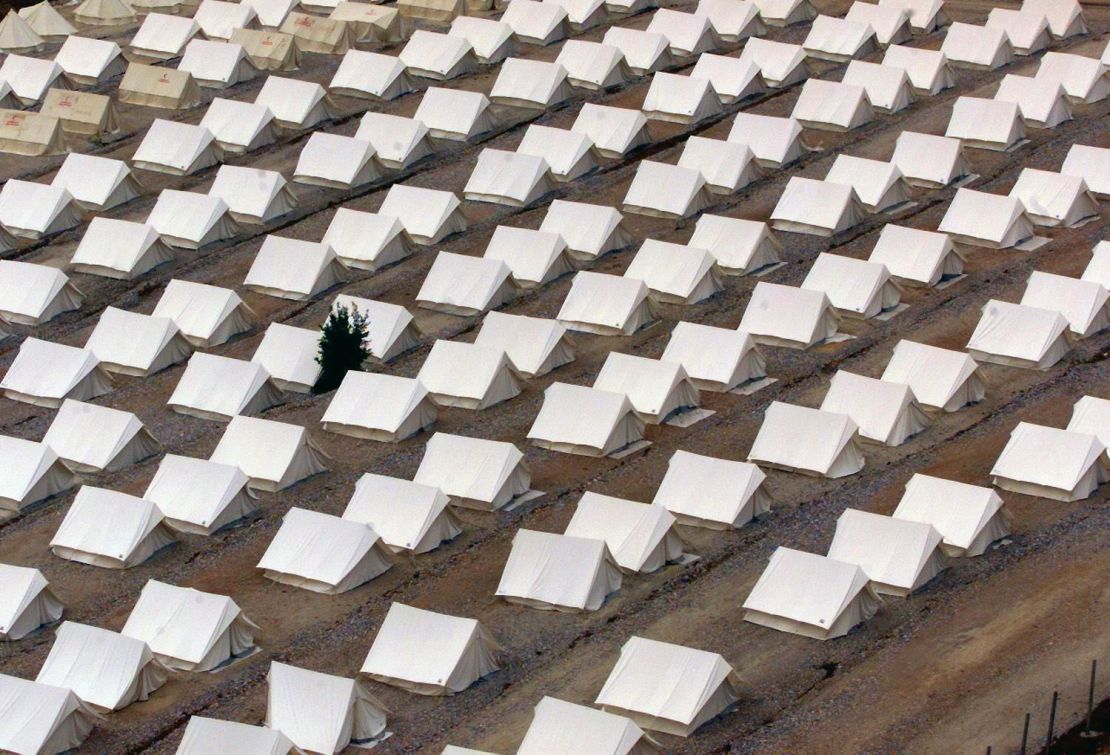
A better life
Rama went on to study architecture and now runs his own firm, which has projects around the world. He makes it a point to hire people like himself – those that have escaped prosecution, that have been refugees.
In 1999, after the war ended, his parents decided to go back home.
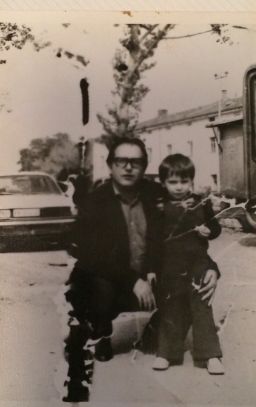
“As soon as Kosovo was liberated by NATO forces, they immediately went back. They weren’t interested in staying in the United States,” he says.
“I think this is what you find with refugees. I worked with refugees during the crisis and in general most of the families wanted to go back.”
And that lost photo album? “The photo album came back three years after, there were a lot of people that I guess knew our family so it went from one hand into the other hand and back to my mum,” says Rama.
Echoes of Kosovo today
Today, Europe is once again being flooded by migrants who are, like Rama, fleeing oppression and war back home.
More than 500,000 refugees are stranded at borders across the European continent, hoping to eventually find safety and stability. From January to July this year, European countries have been inundated by hundreds of thousands of asylum applications.
“The idea of a refugee or of an asylum seeker has this negative connotation that, you know, these people are coming to our country and taking our wealth and so on, which I believe is completely wrong,” he says.
“These people – the migrants, the refugees – they are in need, they are escaping their homes, not because they want to come and take anything from our homes but because their life is endangered.”
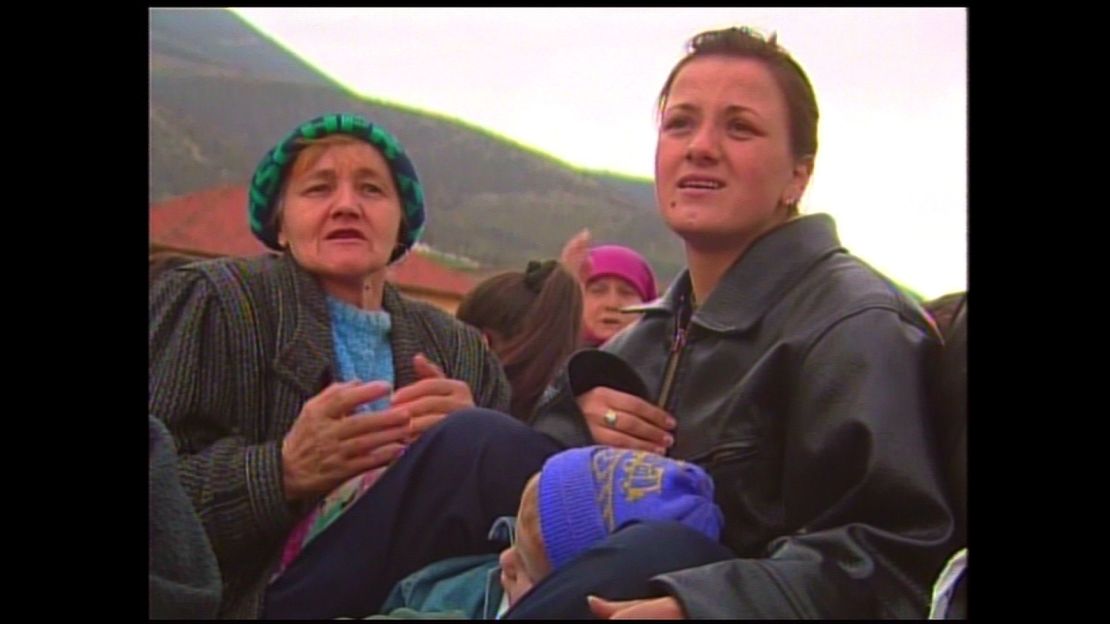
Thankful for chances
He says he feels fortunate to have been able to pursue his dreams.
“I am very thankful to the British government for providing me a platform to be who I wanted to be.”
He urges that the world to come together again to show humanity to the refugees knocking on Europe’s doors.
“We need to open up, embrace them, help them and guide them towards their future, a better life.”
